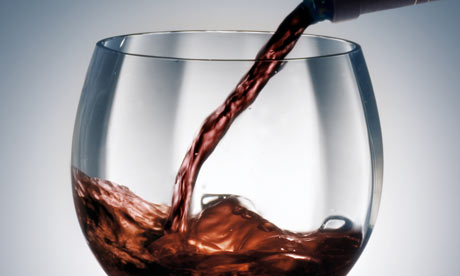
Roger Scruton is the sandwich-board man of intellectual discontent. All around him he sees a society in drastic decline, riven with loutishness, neutered by health fascists and enslaved by childish appetites. These last include the consumption of fizzy drinks and, in consequence, the environmental and aesthetic calamity of cans and bottles littering country lanes. But Professor Scruton, better known for his work in philosophy, music and fox-hunting, has a solution: abandon ye your Sprite and discover the moral virtue of drinking wine. I Drink Therefore I Am is a manifesto for civilised behaviour, an attempt to educate his readers in the right way to appreciate wine and thus enjoy a better life in the process.
Quite a project, this, and it's an alarming experience to find yourself nodding at frequent stages in the text and thinking: "Hmm, not a bad idea." Scruton is generally not a writer I'd wish to be heard quoting, but whatever else he may be, he's no slouch when it comes to wine, and the first part of the book combines a memoir of his development as a "wino" (his word) with some useful tips and unexpected factoids. Did you know, for instance, that the best food with a white Hermitage is "clay-baked hedgehog" or, failing that, chargrilled squirrel?
I'll skip that, come to think of it, but I did welcome the recommendations of a Stellenbosch red, Faithful Hound, which has been mistaken at Scruton's table for Château Léoville-Las Cases, and of varietals such as aglianico from Italy and bierzo from Spain. On the subject of claret – his youthful eureka moment was a sip of'45 Château Trotanoy – he is sound and confesses his occasional surprise "to discover that I drink anything else".
He's no snob about wine, either, always on the hunt for a bargain and canny in seeking out those vineyards and plots that lie next to the big names yet charge half the price. Alas, he is prone to the sonorous pomposities of the connoisseur and in phrases such as "the higher liturgy of Bacchus" and the "ceremonial priestcraft" of uncorking a bottle you detect the crooked pinkie and the glint of the pince-nez.
His dinner parties sound a real gas: "A good wine should always be accompanied by a good topic"; he prescribes, for example, "whether the Tristan chord is a half-diminished seventh or whether there could be a proof of Goldbach's conjecture." Everybody back to Rog's, then…
That pedagogical side comes out strongly in the book's second part, which gets to grips with the philosophical implications of oenophilia. This is less enjoyable, though one may still sift bracing minerals of good sense from the slightly dry lecturing: he is good on wine as the expression of a place and community, on the nuances of intoxication and on the social beneficence of buying rounds. He is insistent, though not entirely convincing, about wine as an agency of moral enhancement: "Wine respects our illusions and even amplifies the more benign among them. But it does not provide an escape route from reality." One must suppose he has never tried drinking Thunderbird.
While much of the book is thoughtful and serious, however, Scruton suffers, in common with many academics, an inability to hear when he's making an arse of himself. He can't seem to help it, in ways that are laughable and occasionally poignant. In one flight of fancy about the wines of Collioure he instructs: "Roll the name 'Maillol' in your mouth while imagining well-shaped buttocks and well-matured wine and you won't be far from the taste." I'm afraid he's ruined that one for me.
Towards the end he makes the case for "virtuous drinking" and recalls a more sociable period of his life when he would get together certain friends to discuss weighty matters over a few bottles of wine – a symposium, as he inevitably calls it. It was at this point I started feeling rather sorry for the professor, who actually proceeds to name those important friends ("the novelist Ian McEwan" was among them), as if he were trying to persuade his readers that as well as being a philosopher and connoisseur, he's also quite a mover and shaker.
But he admits that connecting with people was never his forte and that most of what he learnt about wine he learnt "in solitude". If I hadn't read that he now lives contentedly on a farm with wife and children, I would have felt almost duty-bound to invite the poor man to quaff a few bottles round here. As long as he came without the hedgehog bake, we might have got on, too.

